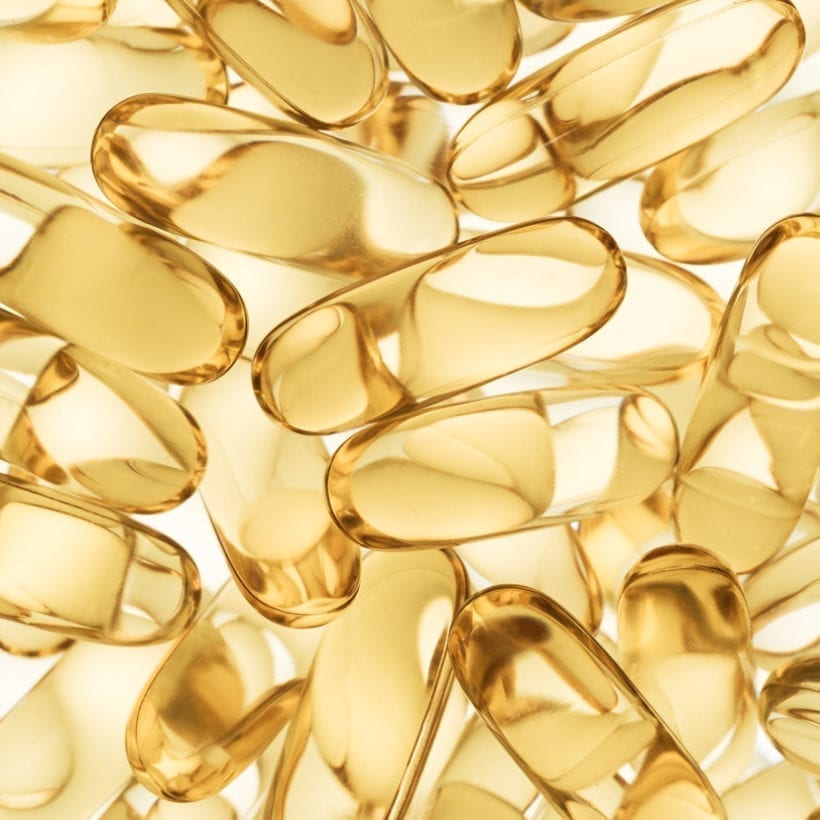Ingestible collagen — particularly in the form of powders — is not a fad that was simply named a “rising trend” in 2017. It has been common practice in Asia for years, and though it made it big in the U.S. about two years ago, it is 2019 and a lot of us still don’t know how it works or how to shop for it. Aside from buzzworthy Vital Proteins, what else is there and what should you look for in a collagen supplement? The good news is that collagen is easier to find than ever before. ExpoWest 2019 — natural products exposition — exposed the ingredient as a rising trend that will continue to be worked into drinks, foods and more. (Think: water, protein bars, oatmeal and peanut butter.)
What is Collagen?
Collagen is the main structural protein in various connective tissues of the body and has been shown to be revolutionary in promoting good skin, hair, nail, bones and joint health. It is actually the most abundant form of protein in mammals and comprises about 25-35 percent of the protein content in our bodies. A key benefit of collagen? It supplies 18 amino acids, especially one that is not found in any other type of protein: hydroxyproline. The body uses this amino acid to produce more new collagen on its own.
Most forms of ingestible collagen out there are sourced from cows, pigs and fish. And while the most common form is bovine and cow collagen, fish collagen should not be overlooked. Marine collagen is smaller in molecule size, making it more “bioavailable,” which means that more of it enters the bloodstream.
https://www.instagram.com/p/BqBObw2ATsv/
How Does it Work?
When you consume collagen peptides, those peptides are broken down in the GI tract and absorbed into the bloodstream, where then they are shuttled to different areas in the body: joints, bones, ligaments, hair, skin and nails. Whitney Bowe, M.D., a celebrity dermatologist in New York City, says the body interprets the surge in peptides as a sign that you need to heal and will bump up the collagen production where it needs it most.
A key benefit of collagen is it supplies hydroxyproline, which the body uses to produce more new collagen on its own.
Types of Collagen
Not all collagen supplements are created equal. Certain chains of collagen dipeptides are more potent than others, and the right composition of dipeptides determines how strong and effective the supplement actually is. “Hydroxyproline-Proline and Hydroxyproline-Glycine, which also go by ‘PO’ and ‘OG’ are two dipeptides that have been shown to stimulate proliferation of skin fibroblasts and also boost hyaluronic acid production in the skin,” says Bowe. “These are technical terms which mean that PO and especially skin-friendly.”
The 28 different types of collagen in the body will provide benefits for your hair, skin and nails, bones and joints, but it is good to know the difference between types of collagen. These are the three primary types:
Type I is considered the key building block for the skin, comprising about 80 percent of the dermis layer — it is also the best collagen supplement for your skin.
Type II is best for the joints. It makes up about 50 percent of cartilage. This makes it a great choice for people who practice sports or exercise vigorously, as they may require a bit more support for joint health.
Type III is the second most abundant collagen in human tissue, and it is also the main component of good hair, skin and nail health. It is found in reticular fibers, like bone marrow, and alongside Type I in the body.
All in all, all kinds of collagen are good for your health. More important than the exact type, is perhaps that when choosing your collagen supplement, you also look for formulas that are “hydrolyzed,” which means that these collagen peptides are broken down already into smaller molecules that make it easier to digest. Collagen that says “unhydrolyzed” means it is in its original state and the molecules are large.
https://www.instagram.com/p/Bo9cxy0BD07/
Which Type of Collagen Supplement is Right For You?
Bowe says that picking the right type of collagen supplement really comes down to preference. More important than in what form you are consuming it, is the dose you take, the brand you pick and the science behind their claims. “It’s more about what you’ll actually find yourself doing every day, that works seamlessly into your routine,” she says.
Collagen Powders: The upside of collagen powders is that you have flexibility in exactly what how you take it, and what you add it to. You can add it to your coffee, smoothies, chai tea at night or water — you can even add it to baked goods. One scoop will give you around 10 grams of collagen.
Collagen Pills: The biggest difference between pills and powder is that pills come in capsules, which are made of gelatin and water. Other than that, they are the same product and are generally the pick of those who do not see themselves wanting to add collagen to anything else. The biggest drawback is that these pills are generally quite large and you have to take anywhere between three and six capsules a day to get 10-20 grams or so, respectively — this is still generally less collagen than you would likely consume by adding the powder to a drink.
Collagen Water: For people on the move, grab-and-go collagen water is the way to go. It skips the step of dissolving the peptide powder in water or another type of drink — and they are flavored. One bottle will give you up to 10 grams or so, and may have added sugars, so look for formulas with little sugar or no added sugars. Brands like Vital Proteins and Dirty Lemon lead the pack in this sector.
Collagen Gummies: Chewable collagen gummies are generally made with other skin moisturizing and repairing ingredients like hyaluronic acid, vitamin C and glycerin. The drawback, according to Bowe, is that they usually have the lowest dose of collagen and sometimes contain added sugars, artificial colors or additives.
https://www.instagram.com/p/B0WrG0cJirR/
How Much You Should Take
All studies that show a significant benefit from consuming collagen require consistency, where participants take specific doses every single day for months at a time. “If you’re going to start a collagen supplement and want to put it to the test, I would say you really should stick with a daily dose for at least six weeks, and ideally 12 weeks before determining whether it’s working for you,” says Bowe. In terms of what dose is best, Bowe recommends taking approximately 20 grams per day, which translated to about two standard scoops. If using capsules, that should be about six capsules per day. For other types, consult the label for serving sizes.
Other Ingredients You Should Watch For
If you take your collagen supplement with a vitamin C ingredient, you are ahead of the game. To create collagen, the body needs to add hydrogen and oxygen to its amino acids, and vitamin C is elemental to making this happen. Another ingredient is hyaluronic acid, which is commonly found in beauty-first formulations like Vital Protein’s Beauty Collagen and Body Kitchen’s Youthful Beauty blend. “It’s a sugar gel that’s found naturally in your body. It’s in your skin, it’s in your joints — it’s the cushion that keeps your bones from rubbing against each other,” says Bowe. “New, small studies show that you might actually help moisturize your skin from within by ingesting hyaluronic acid.”
We only recommend products we have independently researched, tested and loved. If you purchase a product found through our links, Sunday Edit may earn an affiliate commission.







